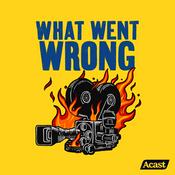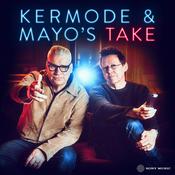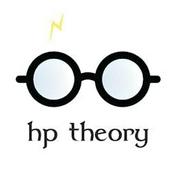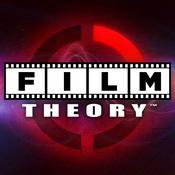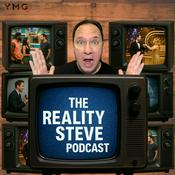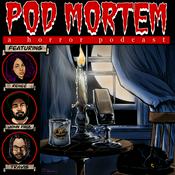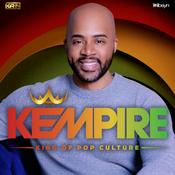879 episodes
- Written by Professor Santiago Fouz-Hernández (Durham University), The Films of Bigas Luna (Manchester UP, 2025) is the first comprehensive English-language study of the complete filmography of Spanish filmmaker Bigas Luna, spanning from Tatuaje (1976) to DiDi Hollywood (2010).Engaging with theoretical frameworks such as haptic cinema, erotic cinema, auteur theory, and studies of gender, sexuality, and national identity, the book situates close readings of Bigas Luna’s films within broader discussions of production and marketing. Fouz Hernández draws on extensive archival research―including original screenplays, press materials, and interviews with industry professionals―while engaging with previous scholarship in multiple languages.Structured into five thematic chapters, the book explores key concerns in Bigas Luna’s work, including genre, gender representation, Iberian and Mediterranean identities, and meta-cinematic narratives. It can be read as a cohesive study of his oeuvre or as a reference for specific films.
The interview is hosted by Dr Fiona Noble, Lecturer in Spanish and Latin American Studies at the University of Stirling, Scotland, and the author of Subversive Spanish Cinema: The Politics of Performance (Bloomsbury, 2020).
Learn more about your ad choices. Visit megaphone.fm/adchoices
Support our show by becoming a premium member! https://newbooksnetwork.supportingcast.fm/film - In an age of growing wealth disparities, politicians on both sides of the aisle are sounding the alarm about the fading American Dream. Yet despite all evidence to the contrary, many still view the United States as the land of opportunity. The American Mirage addresses this puzzle by exposing the stark reality of today’s media landscape, revealing how popular entertainment media shapes politics and public opinion in an increasingly news-avoiding nation. Drawing on an eclectic array of original data, Dr. Eunji Kim demonstrates how, amid a dazzling array of media choices, many Americans simply are not consuming the news.
Instead, millions flock to entertainment programs that showcase real-life success stories, such as American Idol, Shark Tank, and MasterChef. Dr. Kim examines how shows like these leave viewers confoundingly optimistic about the prospects of upward mobility, promoting a false narrative of rugged individualism and meritocracy that contradicts what is being reported in the news. By taking seriously what people casually watch every day, The American Mirage shows how rags-to-riches programs perpetuate the myth of the American Dream, glorifying the economic winners, fostering tolerance for income inequality, and dampening support for redistributive policies that could improve people’s lives.
Our guest is: Dr. Eunji Kim, who is an Assistant Professor of Political Science at Columbia University. As a political communication scholar, she primarily studies the impact of media content on mass attitudes and political behavior. She is the author of The American Mirage: How Reality TV Upholds the Myth of Meritocracy. Her research explores a range of topics, and has been published in many leading journals including the American Political Science Review, American Journal of Political Science, Journal of Politics, and Proceedings of the National Academy of Sciences.
Our host is: Dr. Christina Gessler, who is a writing coach and editor for academics. She is the creator and producer of the Academic Life podcast, and writes the show’s newsletter at ChristinaGessler.Substack.com.
Playlist for listeners:
Understanding Disinformation
100 Years of Radio in South Africa
You Have More Influence Than You Think
Black Girls and How We Fail Them
Live From The Underground
Welcome to Academic Life, the podcast for your academic journey—and beyond! Please join us again to learn from more experts inside and outside the academy, and around the world. Missed any of the 300+ Academic Life episodes? Find them here. And thank you for listening!
Learn more about your ad choices. Visit megaphone.fm/adchoices
Support our show by becoming a premium member! https://newbooksnetwork.supportingcast.fm/film Darién J. Davis, "'Black Orpheus' and the Globalization of Afro-Brazilian Culture" (Rutgers UP, 2026)
2026/2/18 | 55 mins.“Black Orpheus” and the Globalization of Afro-Brazilian Culture (Rutgers UP, 2026) is the first historical study in English to examine the development, production, and reception of the 1958 film Black Orpheus and its legacy in the 1960s and 1970s. It focuses on the making of the film and the trajectories of the major actors and musicians who helped construct an image of Black Brazil and provides an analysis of the globalization of Afro-Brazilian images and music in France and the United States in the wake of the movie’s success. Using archival sources, interviews, and the secondary literature from France, Brazil, and the United States, this book reveals information about the cultural histories of all three countries and gives readers new insight into the trajectories of diverse actors such as Breno Mello, Marpessa Dawn, and Léa Garcia and performers such as Agostinho dos Santos, Baden Powell, and Maria D’Apparecida.
Darién J. Davis is a professor and the chair of Africana studies at Rutgers University–Newark. He is the author of four books, three edited volumes, and more than forty essays and articles in English, Spanish, and Portuguese.
Reighan Gillam is Associate Professor in the Department of Latin American, Latino, and Caribbean Studies at Dartmouth College. Her research examines the ways in which Afro-Brazilian media producers foment anti-racist visual politics through their image creation. She is the author of Visualizing Black Lives: Ownership and Control in Afro-Brazilian Media (University of Illinois Press).
Learn more about your ad choices. Visit megaphone.fm/adchoices
Support our show by becoming a premium member! https://newbooksnetwork.supportingcast.fm/filmRobert P. Kolker and David Wyatt, "The Film Auteur: Angles of Vision" (Routledge, 2026)
2026/2/17 | 55 mins.An accessible introduction to the concept of the auteur (author) in film theory.
In The Film Auteur: Angles of Vision (Routledge, 2026) Robert Kolker and David Wyatt provide readers with a history of auteur theory, from its initial origins in France in the late 1940s as an outgrowth of the cinematic theories of the French film critics and theorists André Bazin and Alexandre Astruc, to the canonizing work of American film critic Andrew Sarris in the 1960s. After a streamlined account of the various postwar renaissances in film - the shock of “Neorealism”, the “New Wave,” and “New American Cinema” - the book features detailed examinations of the work of forty-eight auteurs, including F.W. Murnau, Jean-Luc Godard, Ida Lupino, Alfred Hitchcock, Yasujirō Ozu, Stanley Kubrick, Spike Lee, Pedro Almodóvar, and Jane Campion. In its focus on a limited number of auteurs, this book aims to offer a map of representative figures rather than an exhaustive or comprehensive list, providing an informative entry point to the study of the auteur.
Essential reading for any students of film theory and film studies, particularly those taking classes on the auteur.
Learn more about your ad choices. Visit megaphone.fm/adchoices
Support our show by becoming a premium member! https://newbooksnetwork.supportingcast.fm/film- The average estimated words-per-minute in a feature film is 90; His Girl Friday (1940) clocks in at 240. And yet the fast dialogue is only one of its many fascinations. Everything about it perfectly lands: the script, the casting, the camerawork, the minor players–all contribute to what can be called, without the kind of hyperbole found in the Morning Post, a perfect film. It’s as cynical as Network yet as joyful as Singin’ in the Rain and skewers the news-tainment complex with an affection for its perpetrators. Join us for an appreciation for one of the best.
Incredible bumper music by John Deley.
Admirers of the film will enjoy this beautifully designed book edition of the original screenplay, in which the original dialogue from the film is reproduced complete with an accompanying commentary.
Please subscribe to the show and consider leaving us a rating or review. You can find over three hundred episodes wherever you get your podcasts. Follow the show on Letterboxd and email us any time at [email protected] with requests and recommendations. Check out Dan Moran’s substack, Pages and Frames, where he writes about books and movies, as well as his many film-related author interviews on The New Books Network. Read Mike Takla’s substack, The Grumbler’s Almanac, for commentary on offbeat topics of the day.
Learn more about your ad choices. Visit megaphone.fm/adchoices
Support our show by becoming a premium member! https://newbooksnetwork.supportingcast.fm/film
More TV & Film podcasts
Trending TV & Film podcasts
About New Books in Film
This podcast is a channel on the New Books Network. The New Books Network is an academic audio library dedicated to public education. In each episode you will hear scholars discuss their recently published research with another expert in their field.
Discover our 150+ channels and browse our 28,000+ episodes on our website: newbooksnetwork.com
Subscribe to our free weekly Substack newsletter to get informative, engaging content straight to your inbox: https://newbooksnetwork.substack.com/
Follow us on Instagram and Bluesky to learn about more our latest interviews: @newbooksnetwork
Support our show by becoming a premium member! https://newbooksnetwork.supportingcast.fm/film
Podcast websiteListen to New Books in Film, Two Ts In A Pod with Teddi Mellencamp and Tamra Judge and many other podcasts from around the world with the radio.net app
Get the free radio.net app
- Stations and podcasts to bookmark
- Stream via Wi-Fi or Bluetooth
- Supports Carplay & Android Auto
- Many other app features
Get the free radio.net app
- Stations and podcasts to bookmark
- Stream via Wi-Fi or Bluetooth
- Supports Carplay & Android Auto
- Many other app features

New Books in Film
Scan code,
download the app,
start listening.
download the app,
start listening.







